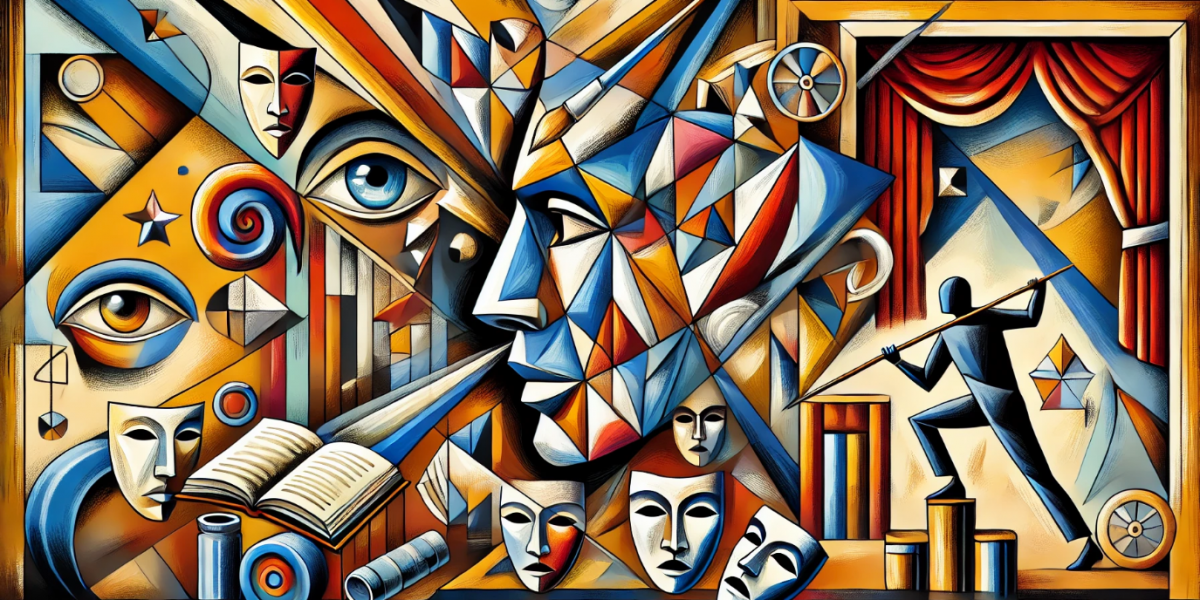Curiosity is an invaluable trait that often distinguishes good actors from great ones. It represents an attitude that drives performers to investigate, try new things, and broaden their perspectives. Rather than being a momentary fascination with our surroundings, curiosity embodies an ongoing quest to grasp the intricacies of human experience. For actors, nurturing this curiosity is what it takes for development, adaptability, and richness in their art.
The Power of Curiosity in Acting
Curiosity can be a driving force in an actor’s career, pushing them beyond their comfort zones. It’s about asking questions, seeking knowledge, and being open to new ideas. This mindset enables actors to develop a more nuanced understanding of their characters and the stories they tell, ultimately leading to more authentic, compelling performances.
1. Exploring New Techniques and Methods
Acting is a craft that offers a multitude of techniques and methodologies, each providing a different approach to understanding and portraying characters. From the classic methods of Stanislavski and Meisner to modern-day techniques like the Alexander Technique and Viewpoints, there’s a vast array of tools at an actor’s disposal. A curious actor is one who isn’t content with mastering just one approach but is eager to explore and incorporate different methods into their repertoire.
For instance, an actor trained primarily in method acting might benefit greatly from exploring the Meisner technique, which focuses on external stimuli and reacting truthfully in the moment. Similarly, an actor used to a more physical approach might gain new insights from studying the psychological underpinnings of Stanislavski’s system. By being curious and open to learning, actors can develop a versatile skill set that allows them to adapt to a wide range of roles and directorial styles.
2. Deepening Character Understanding
Actors are propelled by their curiosity to explore their roles more thoroughly, moving past superficial characteristics and behaviors to reveal the core motivations, anxieties, and wishes that define their characters. This journey typically requires them to pose insightful questions regarding the character’s history, connections with others, and life events. What influences have molded them into who they are now? What fears haunt them, and what dreams do they hold dear? How do they perceive their surroundings?
This level of inquiry not only enhances the actor’s understanding of the character but also helps to create a more layered and believable performance. When actors approach their roles with a curious mindset, they’re more likely to discover subtle nuances and contradictions that make their characters more complex and human.
3. Understanding Different Perspectives
Acting is about stepping into someone else’s shoes and seeing the world through their eyes. To do this effectively, actors must be open to understanding perspectives that may be vastly different from their own. Curiosity plays a vital role in this process, encouraging actors to explore diverse viewpoints and experiences.
This may involve looking into elements such as a character’s cultural background, economic status, or historical context. Additionally, it may require studying the lives of people who have encountered challenges similar to those faced by the character. By approaching this inquiry with an open mind and eagerness to learn, actors can cultivate a deeper understanding and empathy for their roles and the worlds they inhabit. This not only improves their performances but also enriches their appreciation of the diverse spectrum of human experiences.
4. Experimentation and Play
Curiosity motivates performers to explore and embrace risks in their craft. It involves having the courage to venture into uncharted territory, regardless of whether the outcomes align with expectations. This playful approach and willingness to experiment are important for development, as they enable actors to investigate various aspects of their art and uncover fresh opportunities.
During rehearsal, an inquisitive performer may try out several methods to portray a scene, playing around with their voice modulation, body movements, or emotional displays. They could delve into different backgrounds for their character or test out various dynamics with their fellow actors.
5. Lifelong Learning and Continuous Growth
The entertainment industry is in a constant state of evolution, marked by emerging trends, technological breakthroughs, and new approaches to storytelling. To stay relevant, actors must adopt a mindset focused on lifelong learning. This drive is driven by a natural curiosity that motivates them to continually pursue knowledge and growth throughout their careers.
This could involve workshops to learn new skills, such as stage combat, dialects, or improvisation. It could mean reading books, watching films, and attending theater productions to study different styles and genres. It might also involve seeking feedback and guidance from mentors, directors, and peers.
Practical Ways to Cultivate Curiosity
While some people may be naturally curious, curiosity is also a trait that can be cultivated and developed. Here are some practical ways actors can foster a mindset of curiosity in their careers:
1. Ask Questions: Make it a habit to ask questions about your character, the story, and the world around you. Don’t settle for surface-level answers; dig deeper to uncover the underlying motivations and emotions.
2. Stay Open-Minded: Be willing to explore new techniques, methods, and perspectives, even if they seem unfamiliar or challenging. Approach each new learning opportunity with an open mind and a willingness to experiment.
3. Seek Out New Experiences: Broaden your horizons by seeking out new experiences, both within and outside of acting. Travel, read, attend cultural events, and engage with people from different backgrounds. These experiences provide insights and inspiration for your work.
4. Embrace Failure: Take risks and make mistakes. Failure is a natural part of the learning process, and each misstep is an opportunity to learn and grow.
5. Reflect on Your Work: Take the time to reflect on your performances and identify areas for improvement. You may want to keep a journal to document your experiences, insights, and progress.
6. Engage with Others: Collaborate with other actors, directors, and creatives. Engage in discussions, ask for feedback, and learn from others.
The Impact of Curiosity on Versatility and Depth
Fostering a curious attitude allows performers to improve their adaptability and depth in various aspects:
1. Versatility: A curious actor constantly expands their skill set and explores new styles and genres. This allows them to take on a wide range of roles and adapt to different directorial approaches. Whether it’s a Shakespearean tragedy, a contemporary drama, or a physical comedy, a curious actor has what it takes to tackle all challenges.
2. Depth: Curiosity leads to a deeper understanding of characters and the human experience. By asking probing questions and seeking out diverse perspectives, actors can create more complex portrayals. This depth of understanding enriches their performances.
Curiosity is a powerful driving force in an actor’s career. By staying open to new techniques, methods, and perspectives, actors can enhance their versatility and depth, creating more compelling and memorable performances.







